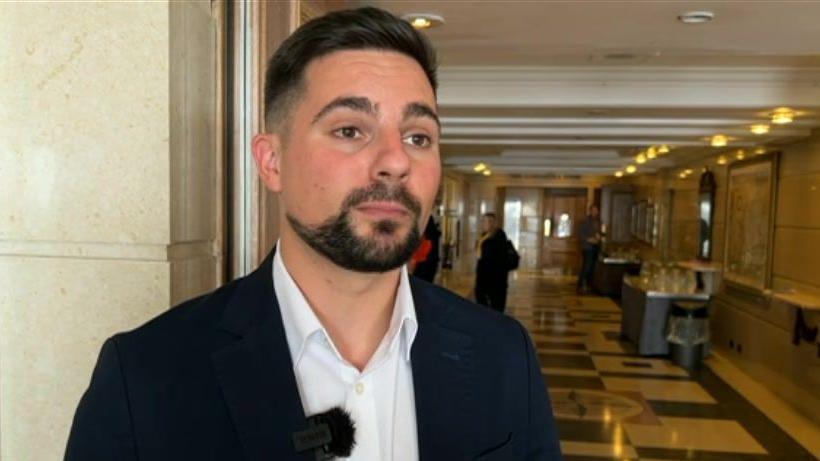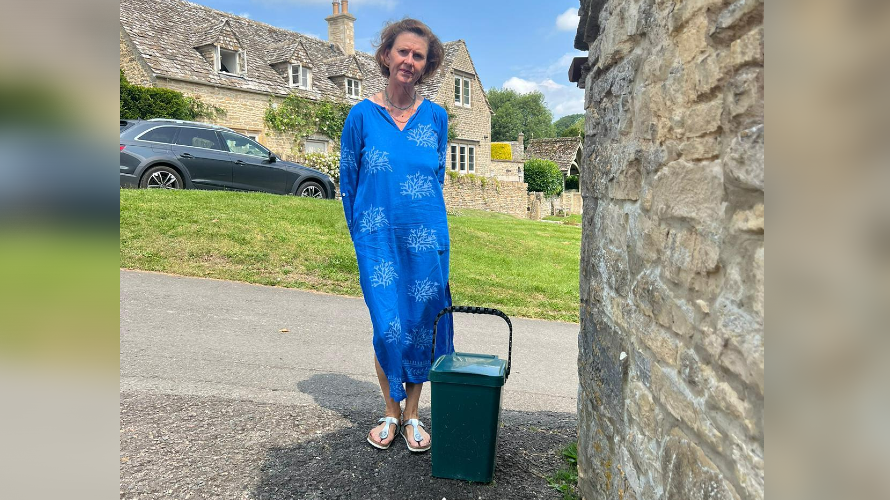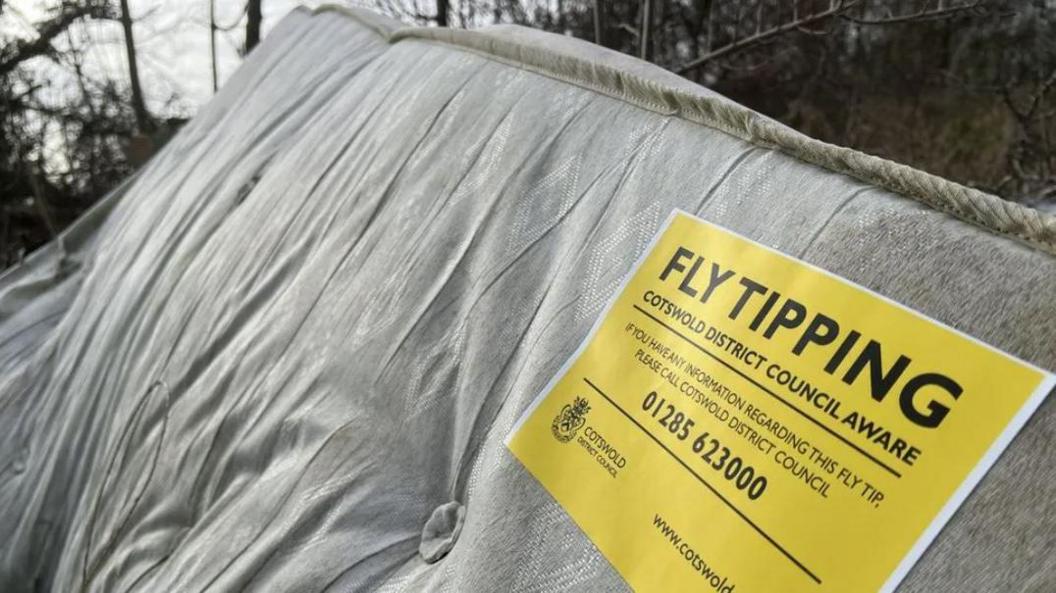Council leader issues warning amid 'bankruptcy' fears

Liberal Democrat councillor Joe Harris says councils face a "huge" funding crisis
- Published
Households face increased bills unless councils are given greater powers, the leader of Cotswold District Council has warned.
Councillor Joe Harris added that many councils only have weeks between learning how much money they will receive before publishing their spending plans.
“You wouldn’t run a business like that - we need long-term funding certainty so we can plan two or three years ahead,” Mr Harris added.
The government has promised to “get councils back on their feet” by introducing multi-year funding settlements.
Speaking at the Liberal Democrat conference in Brighton, Mr Harris added that "if councils start going bankrupt, council tax goes up an awful lot more that it would do otherwise".
Councils that are effectively declared bankruptcy have to draw up a plan within 21 days to balance the budget. The move usually means steep cuts to local services.
Thurrock and Croydon councils, followed by Nottingham, Birmingham and Woking were all effectively declared bankrupt last year.
'Very concerned'
Around half of senior council figures in England and Wales warn their authorities could be effectively bankrupt within five years without reform to the local government funding model, according to research by the Local Government Association (LGA).
Mr Harris also sits as chair of the Liberal Democrats on the LGA, which works to represent all councils nationally.
“We are always an optimistic bunch, the Lib Dems, but that’s not to say we are not very concerned about the huge challenges we face.
“I think the new Labour government are giving us a fair hearing but of course the proof will be in the pudding when they announce some measures hopefully to try and tackle this huge issue.
“We need answers - whether that is the ability to bring more money in, whether that’s a proper funding settlement, or whether that’s a cash uplift," he added.
Mr Harris said that while councils needed the authority to increase council tax, in many areas council tax can account for as little as 15% to 20% of overall income.
“The money we get from government in grants and other fees and charges is really important.
“The key thing is funding certainty. We need to know where the money is coming from," he said.
'Doing the basics right'
A spokesperson for the Ministry of Housing, Communities and Local Government (MHCLG) said: "The government will fix the foundations of local government and work closely with the sector to do so.
“We will get councils back on their feet by doing the basics right, providing more stability through multi-year funding settlements (and) ending competitive bidding for pots of money.”
The MHCLG is also planning to reform the local audit system - the process by which council spending is assessed on financial sustainability, governance and value for money for tax payers.
Get in touch
Tell us which stories we should cover in Gloucestershire
Related topics
- Published9 August 2024

- Published22 August 2024

- Published30 July 2024
